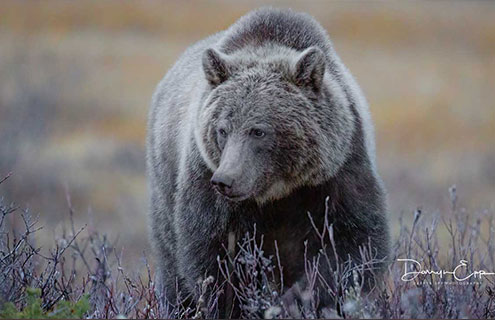Conservation
Predator-Prey Science & Engagement
The goal of this organization is to increase public awareness on the current state of habitat and wildlife declines in this province. One area of focus is the science of predator-prey dynamics and the effects of human encroachment on wildlife in British Columbia.
Predator management is extremely important but not always well tolerated or understood by the general public when it comes to ungulate recovery. Human emotion sways political will which can have a negative domino effect on wildlife management. Humans often place a higher value on predator species than prey species and calls for protection of predators are loud and clear in our province these days.
Predators often have cultural and symbolic significance in human societies, appearing in art, literature and mythology as powerful and revered animals. The cultural importance of different predator species exists across many of British Columbia’s First Nations as well.
Many people rightfully feel a sense of awe and respect for the predatory instinct and the role that predators play in maintaining ecological balance. We also see predators as an integral part of the natural world and as creatures that deserve protection and conservation efforts. These are values by the hunters and conservationists here at Hunters for B.C.
However, human encroachment, habitat fragmentation, climate change (food, water sources changing) can disrupt these dynamics by altering the availability of resources and the physical environment. When human activities such as deforestation, land development, and agriculture encroach upon natural habitats, they often lead to a loss of prey populations and unintentionally aid predator species by allowing predators easier access to prey. Roads and seismic lines can create corridors that connect fragmented habitats, allowing predators to move more easily between areas, broadening their territory and increasing their chances of encountering prey.
Special predator management decisions may be needed at times when prey species populations are in decline. Predators are just doing what predators do – eating to survive – often the young, under 1-year old fawns and calves. This can affect declining populations by reducing recruitment of maturing animals into a herd despite healthy buck/doe or bull/cow ratios and pregnancy rates. Dr. Valerius Geist discussed this in a webinar with us a few years ago (On Prey & Predator Abundance: Lessons from History).
Currently this committee has a established a very diversified group of members actively researching the science of predator-prey relationships, within the habitat available today in this province; habitat that has been significantly altered by humans, biodiversity loss and climate change. Habitat that requires long term commitments and funding to restore the biodiverse ecosystem we once had, and the wildlife populations along with it.
The complexities of issues specific to each region, to each wildlife species, is not lost on the members of this organization. There is the general feeling of urgency among hunter-conservationists in the face of these sharp wildlife declines. And a sense of urgency for the public to engage with their politicians around the values of diverse, healthy populations of wildlife as a strong social value to the residents and visitors of the once Supernatural province. Indeed, habitat restoration will take many years and cannot save some wildlife populations without our intervention and shorter-term solutions. Predator management has been a proven tool for increasing ungulate survival rates and curbing decline particularly in “at risk” areas of concern.
Long-term, this committee has the goal of informing public opinion on the benefits of predator management for certain wildlife species that face long-term struggles to recovering populations. Our team is well focused on softening the protectionism mentality for predators with science based information and public engagement.
A healthy province should have balance and biodiversity, this is achievable with science & commitment.
“NEVER DOUBT THAT A SMALL GROUP OF CONCERNED CITIZENS CAN CHANGE THE WORLD. INDEED, IT IS THE ONLY THING THAT EVER HAS”
MARGARET MEAD


